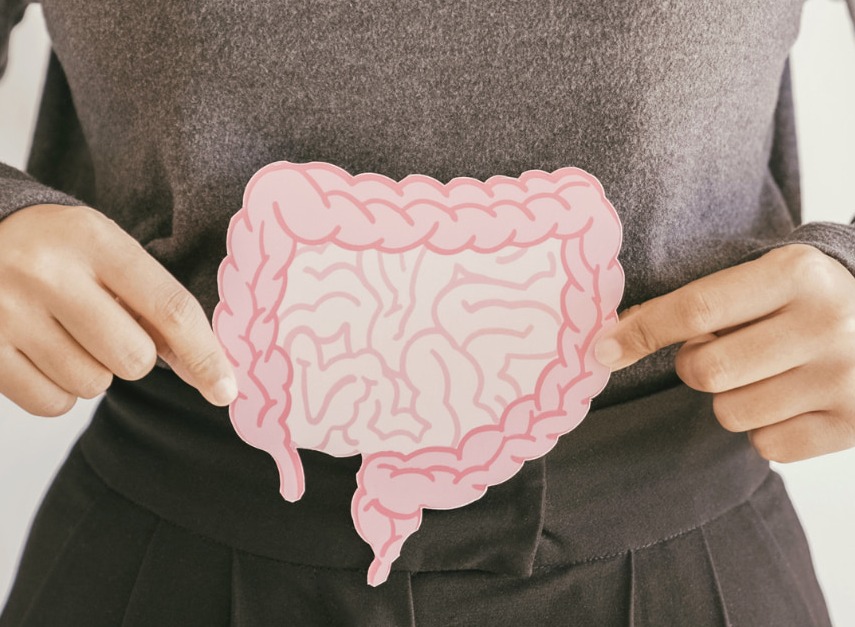Fibromyalgia and sleep disorders: everything there is to know!
Published Nov 6, 2023 • By Candice Salomé
Patients affected with fibromyalgia suffer from diffuse pain throughout the body. This pain is usually associated with intense fatigue, mood disorders and sleep disturbances.
Sleep disturbances include difficulty falling asleep, night-time awakenings and the impression of a superficial, fragmented and non-restorative sleep. Yet the symptoms of fibromyalgia could be improved by better sleep.
So why do fibromyalgia patients experience sleep problems? What is the link between sleep problems and fibromyalgia? What can you do to get restful sleep?
We explain it all in our article!

What is fibromyalgia?
Fibromyalgia is mainly defined as chronic pain that generally affects the whole body. The most sensitive areas are those close to the spinal column (neck, shoulders, shoulder blades, lower back, hips, etc.).
Fibromyalgia patients tend to be most suffering upon waking up, when pain is accompanied by morning stiffness. This stiffness can also be experienced during the day, when a person stays in the same position for a long period of time.
The pain associated with fibromyalgia has some specific characteristics:
- It is diffuse and migratory: it is not always located in the same place,
- It is permanent, but can fluctuate in intensity depending on the time of day,
- Its symptoms may vary: sometimes they resemble those of joint, muscle, tendon or neurological pain (numbness, burning, tingling, etc.).
Pain can be aggravated by various factors such as humidity, emotions, physical exertion, cold, lack of sleep, etc.
To date, there is no organic lesion or biological biomarker that can be used to diagnose fibromyalgia. The criteria used are therefore based solely on the symptoms.
What link is there between fibromyalgia and sleep disorders?
Although sleep disorders in fibromyalgia have long been overlooked, their impact is significant and they affect the vast majority of patients.
In 1976, a Canadian Dr H. Moldofsky demonstrated that sleep deprivation in healthy subjects caused symptoms similar to those of fibromyalgia.
And in 1991, it was revealed that patients suffering with fibromyalgia had a high prevalence of a very specific sleep wave pattern: alpha-delta waves. While these patients should be in a phase of deep, restorative sleep (delta waves), alpha waves (which correspond to light sleep) take over.
This results in hyper-fragmentation of sleep, with sometimes minute amounts of deep sleep: whereas a 'classic' night's sleep consists of 25% deep sleep, fibromyalgia patients often get less than 10%.
The consequences of this sleep pattern are permanent fatigue, non-restorative sleep, mental exhaustion, increased sensitivity to pain, and failure to synthesize numerous anti-inflammatory molecules.
Sleep disorders in fibromyalgia patients should therefore be treated: better sleep helps reduce symptoms, particularly pain, and thus regain better quality of life.
However, the scientific community still finds it difficult to determine whether sleep deprivation is the cause or consequence of fibromyalgia.
What can people suffering with fibromyalgia do to improve their sleep?
Lack of restful sleep is a characteristic feature of fibromyalgia. Patients suffering from severe sleep disorders may be prescribed medication, which is however not specific to sleep problems. This can be amitriptyline (Amitid®, Elavil®), an antidepressant of the imipraminic family, which in this case is used in low doses, or pregabalin (Lyrica®), an anti-epileptic to be taken in the evening.
Take care!
Sources :
Fibromyalgie – Fatigue Chronique : Et si la cause était le sommeil ?, Eléa Santé
Fibromyalgie : les troubles du sommeil en cause ?, Vidal
FIBROMYALGIE : Pourquoi il faut traiter de manière proactive les troubles du sommeil, Santé Log
Symptômes et diagnostic de la fibromyalgie, Ameli
Fibromyalgie, Le Manuel MSD
Fibromyalgie, Inserm
Comment soigne-t-on la fibromyalgie ?, Vidal
Comments
You will also like

Fibromyalgia and digestive disorders: understanding the link and relieving the symptoms
Dec 13, 2024

 Facebook
Facebook Twitter
Twitter

